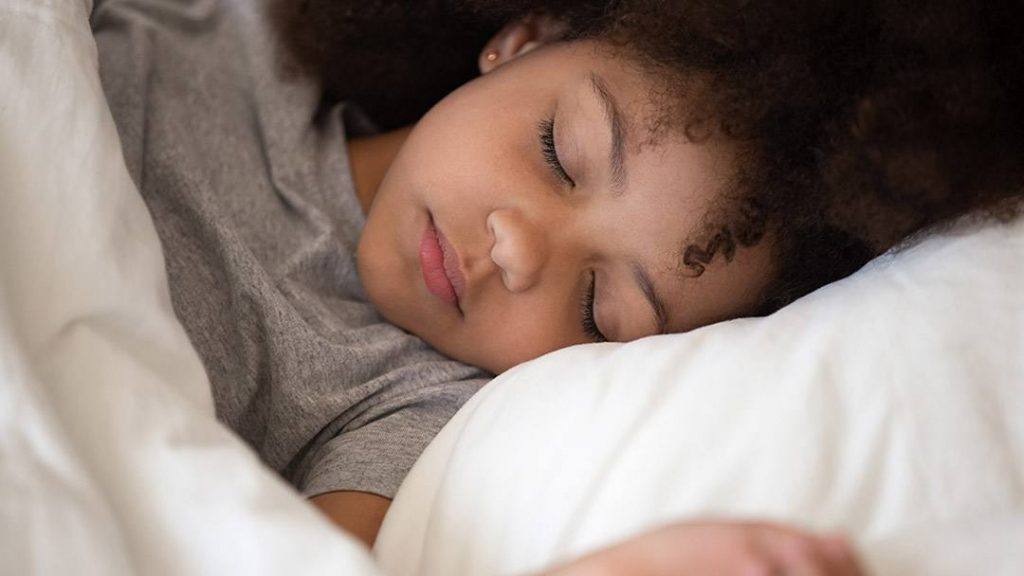-
Diversity
Mayo Clinic Q and A: Children’s sleep habits

DEAR MAYO CLINIC: I have noticed behavioral changes and academic performance issues in my child since he returned to school in person after the holiday break. Because of COVID-19, he had been attending school virtually. As a result, he had flexibility in his schedule. Now he needs to wake up earlier to catch the bus, and we try to start bedtime rituals about 30 minutes earlier. But he has trouble falling and staying asleep at night. His teacher says he is always yawning. I suspect his school issues may be caused in part due to his lack of sleep. Do you have any advice or other suggestions to help him be more rested?
ANSWER: Adjusting to a new routine after spending so much time at home can be a dramatic change, especially for kids. Recognizing that your son is going through several changes between COVID-19 and heading back to school in person, it is not unreasonable to be concerned about behavior, mood and school performance issues. Certainly, your son's challenges may be exasperated by his sleeping habits.
Sleep deprivation often can be an overlooked cause for behavioral or performance concerns in children. Sleep plays a major role in the restoration and recovery of the body systems, learning, memory consolidation, and healthy brain development. Lack of sleep and these processes can lead to physical and behavioral symptoms that could be misdiagnosed as more severe mental or behavioral disorders. Lack of sleep also reduces the immune system's ability to defend against colds and influenza.
In today's culture, putting in long hours for work and study is valued. While this may be seen as essential for success, it is important to ensure that children's schedules aren't so full that they have no time to relax, as this can keep them from getting adequate sleep
If it's a daily struggle to get your child out of bed in the morning or get him to sleep at an appropriate hour, it's likely that he isn't getting enough sleep on a daily basis.
Children need a large amount of rest each day. The number of hours needed depends on a child's age and needs. Sleep recommendations for children are:
- 3-year-olds
They should get nine to 13 hours of nighttime sleep and one to three hours of nap time. - 4-year-olds
They should get nine to 12 hours of nighttime sleep, with naps recommended. But this varies by child. Naps should be no longer than 2½ hours. - 5-year-olds
They should get eight to 11 hours of nighttime sleep. Naps are optional, and they should be no longer than 2½ hours. - Children 6–13
They should get 10 to 11 hours of nighttime sleep and shouldn't take naps. - Teens 14–17
They should get nine to 10 hours of nighttime sleep.
Getting the recommended amount of sleep can reduce your child's moody behavior throughout the day. Being consistent with sleep can help your child stay awake until bedtime and reduce energetic behavior when it is time to sleep.
It's important to stick to a routine and develop good sleeping habits. A healthy diet that limits caffeine and sugar intake, as well as at least an hour of physical activity, is important for quality sleep.
If you find your child doesn't want to settle down for bed or has trouble falling asleep at an appropriate time, try expanding your bedtime routine. Consider doing quiet family activities an hour before bedtime. This can include activities such as puzzles, reading or coloring. Limit the use of electronics. Using computers, phones or video games before bed can make it harder for your child's mind to release signals to the body that it's time to sleep. Therefore, it is harder to decompress when it's time for bed.
It is also important to make sure you or other family members are not the cause of your child's restlessness. Be mindful of what activities you are doing once your son goes to bed. Are you watching TV in another room? How loud is the volume? Are you and your spouse talking? Be aware of how your voice travels. It can be hard for your child to fall asleep and stay in bed if he hears noises from another room.
Changing your child's sleep routine can take time. Remember to stay calm, and analyze your child's sleeping habits and how his behavior may change. Reevaluate and make adjustments, as needed.
If you feel that your child is continuing to have trouble with sleep deprivation, or if his behavior at school is caused by something else, your son should see his pediatrician or primary health care provider. He or she can refer your son to a counselor or specialist ― Compiled by Mayo Clinic staff
****************************
Related Articles
- Consumer Health: Melatonin and sleep published 3/11/21
- Consumer Health: Is your teen getting enough sleep? published 1/29/21
- Mayo Clinic Q and A: Healthy sleep habits for children published 10/30/20
- Consumer Health: 6 steps to better sleep published 6/4/20
- Mayo Clinic Minute: Tips for kids to get better sleep published 8/9/19







